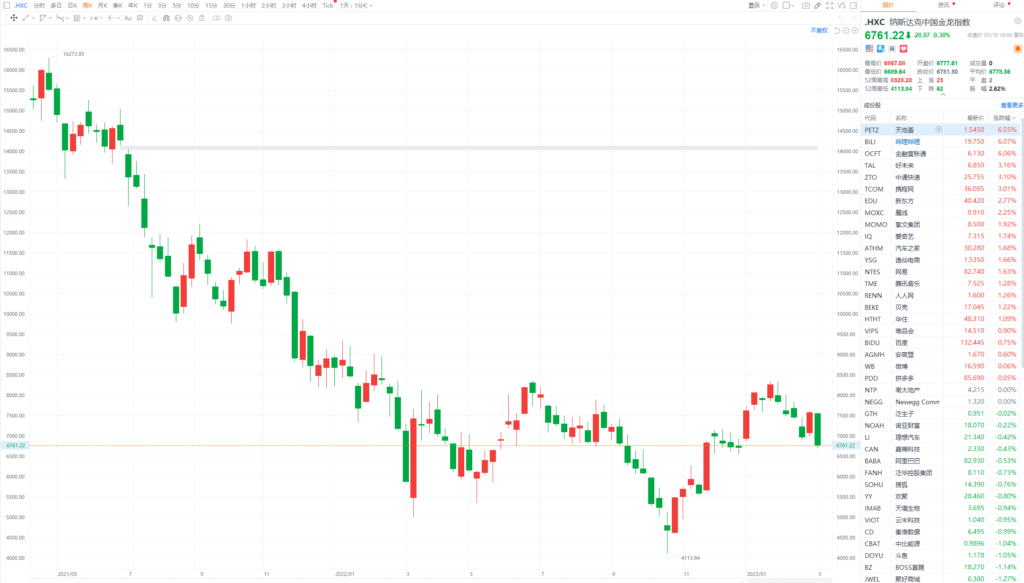Open an account without queuing >> The A-share market has been rising continuously. Last week, the Shanghai Composite Index rose 12.81% cumulatively, hitting its largest single-week increase in nearly 16 years since November 2008. The sentiment in overseas markets has also reversed in a V-shape. “The sentiment of foreign investors now can be summarized in three words – ‘All-in Buy China’. This change has been very obvious in the past week. Hedge funds have poured in first, and long-term funds may also have to increase their positions subsequently.” A person from an overseas hedge fund told reporters.
The capital flow of the overseas A-share trading desk has reached a new high. CBN reporters learned that overseas traders at Goldman Sachs mentioned in a client conference call that as the total turnover of the A-share market exceeded 1.1 trillion yuan for two consecutive days – the last time was on May 6. That is to say, market sentiment may have reached its highest level in the past year. “The capital flow of our A-share trading desk also reached a record high on Wednesday.
61%. Additionally, two specific measures proposed at the meeting deserve attention. First, the meeting explicitly demanded ‘adjustments to housing purchase restrictions’, and second, the meeting emphasized ‘increasing loan disbursement for projects on the ‘white list”, with the intention of encouraging commercial banks to expand credit to real estate companies. As of now, commercial banks have approved more than 5,700 ‘white list’ projects, with approved financing amounts reaching 1.
43 trillion yuan, supporting the timely delivery of over 4 million housing units. Amundi Investment Institute told reporters, ‘We believe that Chinese stocks, especially A-shares and some Hong Kong stocks, will benefit the most from these policy changes. The significant gap between stock yields and bond yields offers an attractive opportunity for stock investors. If the real estate market can gradually stabilize, coupled with improved household expectations, it may provide further support for stocks. ‘We have a particularly positive view on consumer goods and financial stocks, especially brokers, as they are expected to benefit from increased market activity. At the same time, we suggest reducing short positions on the yuan to neutral, as speculation about higher growth and inflation is increasing under the expectation of fiscal stimulus, which helps stabilize the currency. However, with the upcoming US elections, external risks still need to be monitored. Although the market response has been generally positive, the key will still be whether a strong fiscal stimulus package can be introduced.’ In terms of policy execution, it is believed that China ultimately needs to introduce well-considered policies to address a range of structural issues, especially on how to stabilize the real estate market, which has been contracting for four consecutive years. BlackRock’s Chief China Economist, Song Yu, told First Financial, ‘The pace of policy implementation is crucial.’ He believes that the October Standing Committee meeting is key. ‘If additional national debt issuance and an increase in the deficit ratio are required, this process must be passed, and future fiscal efforts are needed to reverse economic expectations.’ UBS’s Head of Asian Economic Research and Chief China Economist, Wang Tao, told reporters that the Politburo meeting clarified the necessity of ‘counter-cyclical fiscal policy.’ The institution estimates that the overall fiscal contraction for the first half of 2024 is about 0. 4% of GDP, while the annual fiscal expansion implied by the March NPC meeting is 0.8% to 1%. Regarding the most critical real estate, Lu Ting believes that ensuring the delivery of houses should take precedence over inventory collection. Nomura’s previous research mentioned that the central bank announced the launch of a 300 billion yuan loan for affordable housing in mid-to-late May this year, supporting local state-owned enterprises to purchase existing housing sources and turn them into affordable housing, but the usage of this quota is only in the hundreds of billions of yuan, and many houses have not been completed, which remains the main issue.Lu Ting suggests that the most effective way is for the central government to act as the “ultimate builder” and directly provide funds for those pre-sold but delayed residential projects.


